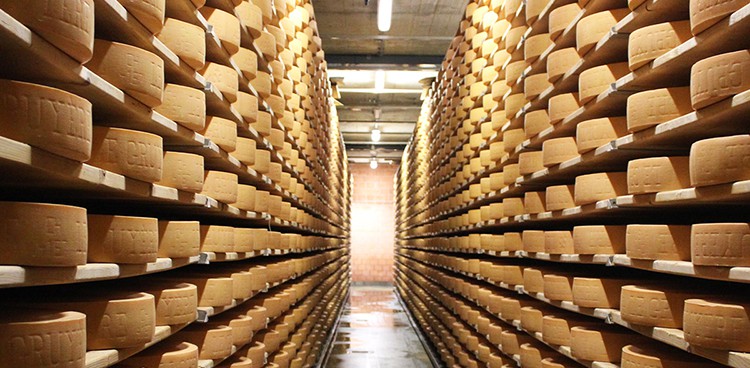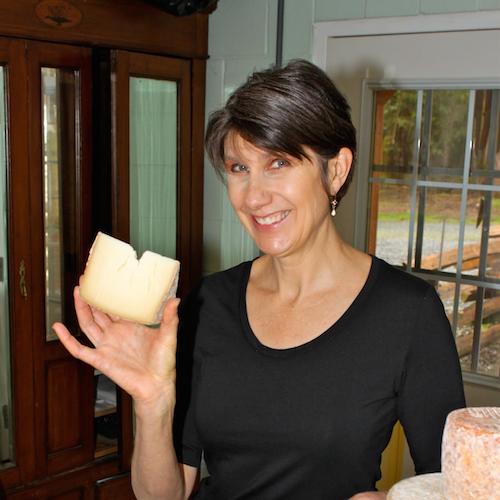
As cheeses age, proteins and fats from the milk break down gradually to create the wonderful flavors and textures we crave. This process requires more than just time; temperature and environment play roles, too. The optimal maturing temperature for most cheeses is about 50 to 55°F (12 to 15°C). Any warmer and the cheese may age too rapidly and, in the case of high-moisture cheeses, might even spoil. Colder temps prevent spoilage but slow the aging process dramatically—which isn’t necessarily a bad thing. In fact, some cheeses, such as blues and bloomy rinds, benefit from a slower, colder ripening period, which allows microbes to alter the cheese without growing too quickly. Most cheddar produced on a large scale is aged in vacuum-sealed bags at temperatures of about 35 to 40°F (1.6 to 4.4°C). Temperature changes, just like other tweaks in the make process, can produce subtle differences in the resulting cheeses. All hail variety!




